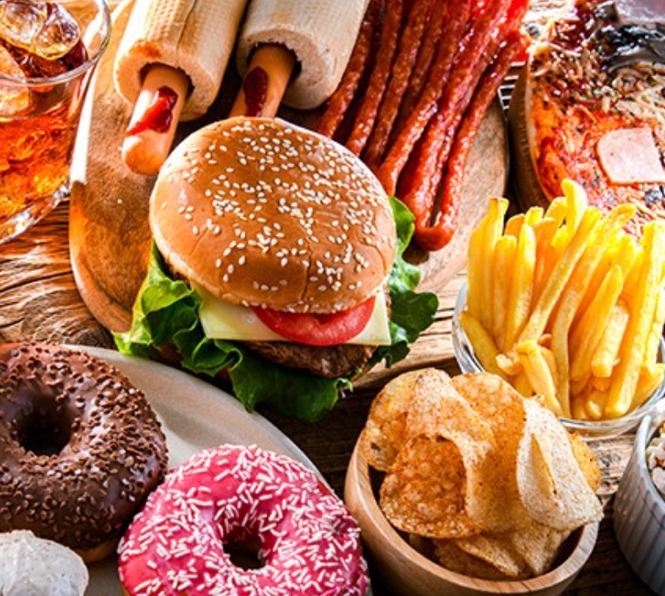Processed Foods linked to Mental Health and Cancer

Did you know that we Americans consume more than half of our daily calories from ultra-processed food. A new study in BMJ finds that consuming lots of this food is linked to and associated with higher risks of many diseases, including mental health issues like depression and anxiety and certain forms of CANCER.
My brother died of colorectal cancer just 2 short years ago. his cancer had metastasized to where he lived 1 more year after diagnosis under extreme hardship. It was discovered that his cancer was diet-related.
It makes sense when you think about it. These ultra-processed, refined, chemically altered foods do affect our cellular system. A recently published study in the British Medical Journal found people who consume high amounts of these foods have an increased risk of “anxiety, depression, obesity, metabolic syndrome, certain cancers, including colorectal cancer and premature death”.
The data come from more than 9 million people who participated in dozens of studies, which researchers analyzed as part of umbrella review, according to the author, Melissa Lane, of Deakin University in Australia.
Ultra-processed foods are overly abundant in our American Diet and in our food supply system. Ease and convenience took over in the late 1900s, leading to an onslaught of “convenience” foods. Just look at the shelves in your grocery store. 80% of the store is processed food; the entire mid-section of our stores is packaged goods. The most common are highly refined breads, fast food, sugary drinks, cereals, cookies, and other packaged goods, including those in the freezer sections. Anything in a bag, box, or can is usually processed. They are often high in salt, sugar, fat and calories and low in fiber and micro-nutrients such as vitamins. The nutrients are often processed out of the food.
We need to grab more fruits like berries and vegetables like green leafy spinach, whole grains such as steel-cut oats and brown rice, nuts and seeds as our go-to foods.
Look at the label. if there is a label, the food likely has been processed. If the ingredient label includes substances you would not find in your own kitchen, such as high-fructose corn syrup, hydrogenated oils, hydrolyzed protein, or additives such as artificial colors, flavor enhancers, emulsifiers, anti-caking agents and thickeners, think twice.
Here’s how to avoid ultra-processed foods
- Avoid sugary drinks
- Limit fast food restaurants
- Eat at home so you know the ingredients.
- Read the label—take peanut butter, for instance—some popular brands have added sugar, hydrogenated oils, and soybeans (more on that later)
- Purchase items in the outside aisles of the store—fresh fruit, veggies,
- Try to modify your eating habits to include the Mediterranean diet, which focuses on plant foods. That means meals built around vegetables, fruits, herbs, nuts, beans and whole grains. Moderate amounts of dairy, poultry and eggs are part of the Mediterranean diet, as is seafood. In contrast, red meat is eaten only once in a while.
- Read the label on anything that is in a bag, can, or bottle.
Having worked for a non-profit that focused on the quality of our food, it starts at the very beginning, as the song goes. The soil, the water, the drying agents, and the plant where it is manufactured.
Good luck, and happy eating! Contact me if I can help!
